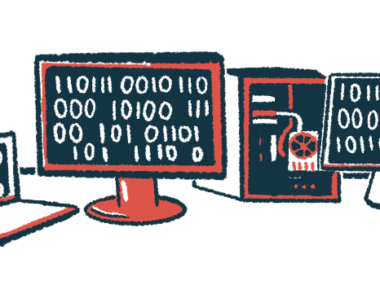Business Partnership to Study Arimoclomol in Phase 2 Trial for Neuronopathic GD Patients
Written by |

Centogene and Orphazyme will collaborate in a Phase 2 clinical trial of arimoclomol, an experimental therapy for Gaucher disease patients with neuronal symptoms.
Orphazyme’s arimoclomol boosts the production of a family of proteins involved in stress response known as heat-shock proteins (HSPs).
Specifically, arimoclomol prolongs the activated form of HSF1, a type of molecule called transcription factor, which regulates the production of HSPs. These proteins play a critical role in cellular quality control and the degradation of pathogenic proteins.
The investigational compound is able to cross the blood-brain barrier without losing its effectiveness, representing an attractive potential therapy for neurological disorders.
“Being able to monitor the treatment improvement in a clinical trial is a crucial capability for the pharmaceutical industry today,” Arndt Rolfs, CEO and founder of Centogene, said in a press release.
“With our deep expertise in biomarker identification and development of diagnostic tools combined with our profound rare disease knowledge and global reach, we are ideally positioned to be the partner of choice for Orphazyme and drug developers worldwide,” Rolfs added.
Gaucher disease is caused by mutations in the GBA gene, which impair the activity of an enzyme called beta-glucocerebrosidase. This enzyme breaks down the fat molecule glucocerebroside into a sugar (glucose) and a simpler fat molecule (ceramide).
In Gaucher disease patients, however, glucocerebroside accumulates and has toxic effects in cells.
This inherited disorder is divided into neuronopathic (types 2 and 3) and non-neuronopathic (type 1) forms, depending on whether or not the brain and spinal cord are affected.
Previous research showed that arimoclomol increases the activity of glucocerebrosidase in cells from Gaucher disease patients.
The Phase 2 trial will compare three different doses of arimoclomol to placebo over a six-month study period. A six-month extension study will follow, in which patients treated with placebo in the Phase 2 trial will have the option of receiving arimoclomol.
Researchers will focus primarily on changes in levels of chitotriosidase in the cerebral spinal fluid (CSF) — which fills the brain and spinal cord — and in the blood. Chitotriosidase is a known marker of Gaucher disease.
Centogene will be responsible for processing and analyzing several different sample types from patients, including plasma, cerebral spinal fluid, and dried blood spots using the company’s dry blood spots proprietary filtercard, called CentoCard.
Centogene will also monitor the concentration of Lyso-Gb1, a highly sensitive and specific biomarker for Gaucher disease, according to the company. The trial is expected to start in mid-2018 and will be conducted in India.
Besides Gaucher disease, Denmark-based Orphazyme is also developing arimoclomol for amyotrophic lateral sclerosis (ALS), Niemann-Pick disease type C, and sporadic inclusion body myositis.



